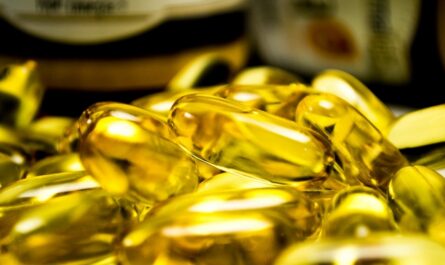Introduction to Spirulina
Spirulina is a type of cyanobacterium that is harvested and dried for use as a nutritional supplement. It has a high concentration of nutrients and protein. Spirulina grows in freshwater and salty lakes and can be cultivated anywhere in the world.
Nutritional Content of Spirulina
Spirulina is loaded with an impressive number of nutrients. A mere 100 grams of dried spirulina powder contains:
– Protein (60-70%): Spirulina contains natural vegetarian protein that is easily absorbed by the body. It is a complete protein containing all essential amino acids.
– Vitamins: It has generous amounts of B vitamins like B1, B2, B3, B6, and B9. It also contains vitamin E, vitamin K, and beta-carotene which is converted into vitamin A in the body.
– Minerals: Spirulina contains iron, magnesium, calcium, potassium, copper, and zinc. It is one of the few natural sources of calcium that is easily absorbed and used by the body. The mineral content in spirulina helps support bone, heart, and muscle health.
– Gamma Linolenic Acid (GLA): This omega-6 fatty acid is known for its anti-inflammatory properties. GLA deficiency has been linked to various health issues.
– Phycocyanin: This unique phycobiliprotein acts as a natural blue pigment. Studies have shown phycocyanin to have antioxidant and anti-inflammatory effects.
Health Benefits of Consuming Spirulina
With such a nutrient-dense composition, it is no surprise that spirulina offers numerous health benefits. Some key benefits include:
– Boosts Energy: The balanced amino acid profile and high protein content in spirulina makes it very effective for boosting energy levels. It enables building muscle mass and endurance.
– Supports Immunity: Being rich in antioxidant compounds like phycocyanin, betacarotene, vitamin C and zinc, spirulina can support the immune system by reducing oxidative stress in the body.
– Supports Cardiovascular Health: With ample iron, magnesium and B vitamins, spirulina helps in the formation of red blood cells. The plentiful GLA also regulates cholesterol levels and blood pressure.
– Aids in Detoxification: Spirulina supplements the liver with essential nutrients required for efficient detoxification of harmful compounds. Its antioxidant compounds also help flush out toxins from the body.
– Manages Anemia: Due to its abundance of iron and B12, Spirulina helps fight nutritional anemias like iron-deficiency anemia by strengthening red blood cell formation.
– Healthy Brain Aging: Eating spirulina provides the brain with important nutrients like omega-3 and B vitamins, thereby promoting healthy brain function and aging. Some studies show spirulina might even promote nerve regeneration.
– Potential Anticancer Effects: Ongoing research has demonstrated spirulina’s ability to enhance the immune system and induce apoptosis in cancer cells, thereby making it a promising adjunct therapy for cancer treatment and prevention
Cultivation, Harvesting and Dosage of Spirulina
Spirulina thrives in warm, alkaline freshwater bodies or salt lakes where the temperature is between 25°C to 35°C. Some countries that commercially cultivate spirulina are India, China, Taiwan, Thailand, and USA.
The cyanobacteria are grown in artificial ponds under control environmental conditions and harvested 20-30 days later. The filtering and drying process converts the biomass into dehydrated powder for use as a dietary supplement.
The recommended dosage of spirulina is 1-3 grams per day. Tablets or capsules that are easier to swallow are also available. It is best consumed as a whole food supplement in powdered form which can be blended into smoothies, oats or added to curries. No major side effects have been reported when taken in moderation.
Nature’s blue-green superfood – spirulina – has emerged as an incredibly nutrient-dense supplement to support overall health and wellness. With its abundance of protein, vitamins, minerals and antioxidants, it can boost energy, immunity, brain function and cardiovascular health among other benefits. Regular inclusion of spirulina in the diet seems to hold great potential for promoting longevity and preventing age-related chronic diseases. More clinical research is warranted, however existing results are truly promising.
*Note:
1. Source: Coherent Market Insights, Public sources, Desk research
2. We have leveraged AI tools to mine information and compile it.



